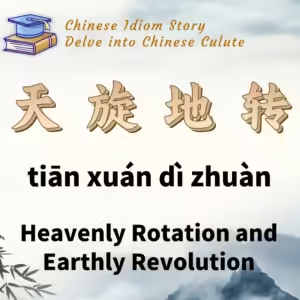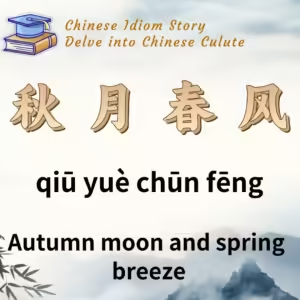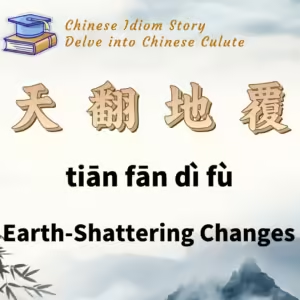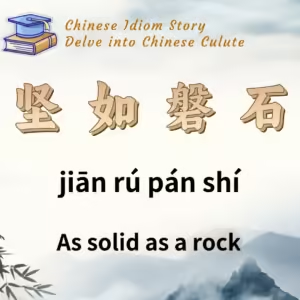
Chinese Idiom: 天旋地转 (Tian Xuan Di Zhuan)
English Translations: Heavenly Rotation and Earthly Revolution
pīn yīn: tiān xuán dì zhuàn
Idiom Meaning: This idiom is used to describe a situation where everything changes fundamentally, or it can describe a feeling of dizziness and disorientation.
Historical Source: The Song of Everlasting Sorrow (《长恨歌》) by Bai Juyi of the Tang Dynasty
Idiom Story:
The Song of Everlasting Sorrow is a long narrative poem by Bai Juyi that recounts the tragic love story between Emperor Xuanzong of Tang and his beloved Yang Guifei. The idiom “天旋地转” (tiān xuán dì zhuàn) is derived from the third part of this poem, which depicts the Emperor’s deep sorrow and longing for Yang Guifei after the political upheaval of the An Lushan Rebellion.
In this section, the poem captures the profound impact of the rebellion and the subsequent changes in the Emperor’s life. It shifts from the earlier portrayal of extravagant pleasures to a somber reflection on loss and separation. The lines describe:
“The yellow dust spreads widely, and the wind is bleak. We travel the winding cloud-path to Mount Jianshan. The road is difficult and sparsely populated, the banners are dim, and the sunlight is thin. The blue water of the Shu River and the green mountains evoke the Emperor’s daily longing for Yang Guifei. The moonlight in the palace makes one mournful, and the rain at night brings sorrowful sounds. The rotation of the heavens and the shifting of the sun signify the recovery of Chang’an, but the Emperor is reluctant to leave the place where Yang Guifei died. There is no sight of her, only her resting place in the dirt. The Emperor and his followers weep, their tears wetting their clothes as they mourn and depart, heading eastwards on their journey home.”
In this context, “天旋地转” (tiān xuán dì zhuàn) reflects the drastic changes in the world and the Emperor’s disorientation as he faces the deep sorrow of separation and loss. The idiom has come to symbolize profound shifts or feelings of dizziness and confusion.






